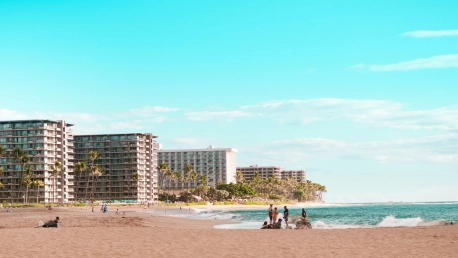Following a recent wildfire in Lahaina, Maui, the already acute housing shortage has come into sharp relief. Service industry workers, crucial to the vitality of Maui’s tourist-driven economy, are finding themselves increasingly unable to afford housing as they’re outbid by the lucrative market for short-term rentals. This competition for properties, fueled by the allure of short-term rental income, is intensifying the housing crunch, leaving many locals struggling to find affordable living spaces. The fire’s aftermath not only reveals the environmental impact of such disasters but also highlights the socio-economic strain on a community heavily reliant on tourism for its sustenance. The struggle for housing is a multi-faceted problem with no simple solutions, as the dynamics of tourism and local living standards are at odds, demanding urgent attention and comprehensive strategies to address the needs of Maui’s residents.
The Aftermath of Disaster
Personal Plight and Displacement
The wildfire in Lahaina not only destroyed property but also uprooted lives. Amy Chadwick’s story is a stark example. Once a contented homeowner, the fine-dining server now must contend with the harsh reality of starting over far from the community she cherishes. Like Chadwick, hundreds are grappling with the decision to stay in an area where the cost of living exceeds what their livelihoods can sustain or to move to distant locales where they can afford to rebuild their shattered lives.As approximately 1,500 households have departed since the blaze, the demographic shift sparks concern that the unique culture and community of Lahaina could be lost. With locals and Native Hawaiians feeling compelled to leave, the very fabric of the community is threatened, underscoring the urgency for solutions that allow people to remain in their homeland.
Housing Shortage and Rental Market Dynamics
In Lahaina, the demand for short-term vacation rentals is clashing relentlessly with the needs of long-term residents. Even before the fire, affordable housing was a rare commodity, a situation now exacerbated by the destruction of many homes. Property owners, seduced by the profitability of vacation rentals, are converting what was once long-term housing into lucrative short-term accommodations, leaving locals with few options but to pay exorbitant rents or move away.The post-disaster housing market highlights the wider issue: a rental scene that is being reshaped by tourism. As accommodation prices soar, driven by transient visitors rather than permanent residents, the service workers crucial to Lahaina’s economy face the grim prospect of being priced out of the community they serve.
The Tug-of-War Between Preservation and Profit
Political Responses to the Housing Crisis
In Lahaina, the rapid increase of vacation rentals has led to heightened housing issues, catching the attention of Governor Josh Green. He openly criticizes the situation, expressing concern over the welfare of the community in the face of economic benefits from tourism. The tension has prompted a hard look at legislative action to better regulate short-term rentals, with the aim of easing the housing crunch for local residents.Lawmakers are actively drafting bills to address this challenge, signaling their commitment to balancing economic interests with the needs of Lahaina’s residents. The proposed legislation would adjust current rental policies to ensure that the housing market is more accommodating for locals, implying a potential reduction in the number of properties available for short-term renting. This legislative push represents an effort to recalibrate the focus towards the long-term stability of housing for the community.
Debating the Future of Lahaina’s Housing
As debate rages over housing legislation, short-term rental stakeholders, represented by individuals like Alicia Humiston of the Rentals by Owner Awareness Association, voice concerns that new laws could provoke foreclosures and breach property rights. They argue that not all tourist areas like West Maui can easily transform into neighborhoods suitable for long-term residents, lacking vital services that families need.On the opposite side, legislators such as State Rep. Luke Evslin champion housing reform, emphasizing the need for solutions that consider communities at large. This tug-of-war captures a pivotal struggle in defining Lahaina’s identity, highlighting the intricate challenge of reconciling personal rights with broader societal requirements. The outcome of this balance bears significant implications for the evolution of the area’s residential dynamics.
Crafting a Sustainable Solution
Navigating Tourism and Livability
Policymakers are walking a tightrope, attempting to construct legislation that resolves Lahaina’s housing shortage without undermining its economic lifeline—tourism. Crafting a sustainable solution necessitates an understanding of the intricate ways in which housing availability impacts not only the social fabric of Lahaina but also its economic vitality. The ideal solution will foster an environment where locals can afford to live, and tourists can continue to enjoy the island’s allure.Striking a balance between the demands of a booming tourism industry and the housing needs of the local population is a formidable but necessary challenge. The road to success is paved with not only laws but also a shared vision that revolves around the well-being of the community—enabling long-term residents and service workers to thrive alongside the thriving tourist economy.
Balancing Rights and the Greater Good
The Lahaina debate is a condensed version of a larger dilemma facing society: how to balance the rights of property owners with the needs of the broader community. On one side, there’s a push for lawmaking that favors the public welfare—emphasizing the necessity for accessible housing and a cohesive community. Conversely, property owners are standing their ground on the principle of autonomy over their assets, pointing out the potential negative financial impact of strict regulatory action on their income.The legislative challenge is crafting policies that respect individual property rights while simultaneously ensuring the preservation of Lahaina’s collective well-being. Such measures would have to navigate the complex interplay between nurturing a thriving local society and maintaining a vibrant tourism sector. The aim is to achieve a harmonious coexistence where both local residents and the tourist economy can prosper.









